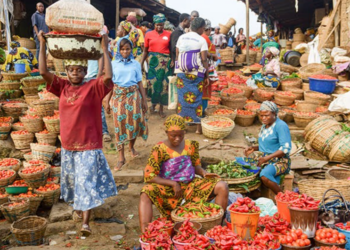Africa’s richest man, Aliko Dangote, is preparing to launch a $1 billion investment project in Zimbabwe.
The project, which will include cement manufacturing, coal mining, and power generation, is part of a broader plan by the Dangote Group to deepen its presence across the continent.
Dangote’s upcoming visit to Zimbabwe follows earlier investment missions in 2015 and 2018, when initial discussions with the government did not result in a deal.
However, new talks initiated during the Afreximbank Annual Meetings held in Abuja in June have reignited interest on both sides.
According to reports, Paul Tungwarara, President Emmerson Mnangagwa’s investment adviser, confirmed that preparations are underway for a high-level meeting between the president and Dangote.
“The richest man in Africa is coming to Zimbabwe at the invitation of President Mnangagwa. The two have been in constant communication, and we are presently working on the logistical aspects of the visit.
“We are keen to ensure that he makes a significant investment in Zimbabwe and avoid what happened during his previous visit in 2015, when he came but did not return,” Tungwarara told journalists.
Upon arrival, Dangote is expected to meet with President Mnangagwa and senior government officials to discuss key investment conditions including mining concessions, tax incentives, investment security, and regulatory approvals.
Dangote’s African industrial strategy
The Dangote Group, one of Africa’s largest conglomerates, operates in 17 countries across sectors such as cement, fertiliser, oil refining, and logistics. The company’s influence has reshaped Africa’s industrial and energy landscape, driving self-sufficiency in markets once dependent on imports.
Its flagship $20 billion refinery in Nigeria is undergoing expansion from 650,000 barrels per day (bpd) to 1.4 million bpd, a move that would make it the largest refinery in the world and further strengthen the continent’s energy security by reducing reliance on imported petroleum products.
Similarly, its cement plants in countries like Ethiopia, Senegal, Zambia, Côte d’Ivoire, and Tanzania have stabilised local supply chains and reduced construction costs.
The company’s expansion into fertiliser and petrochemicals is also enhancing agricultural productivity and strengthening Africa’s manufacturing base, a model Zimbabwe hopes to replicate with the upcoming investment.
What this means
Access to Zimbabwe positions Dangote strategically near South Africa, where he currently has no active investment or industrial presence. The two countries share a long border, with Beitbridge serving as one of southern Africa’s busiest trade crossings that handles most of Zimbabwe’s imports and exports.
If the deal is finalised, the $1 billion complex would rank among Zimbabwe’s largest privately driven industrial investments in more than a decade.
The $1 billion investment in Zimbabwe is a key step in his long-term goal of building a pan-African industrial network.























